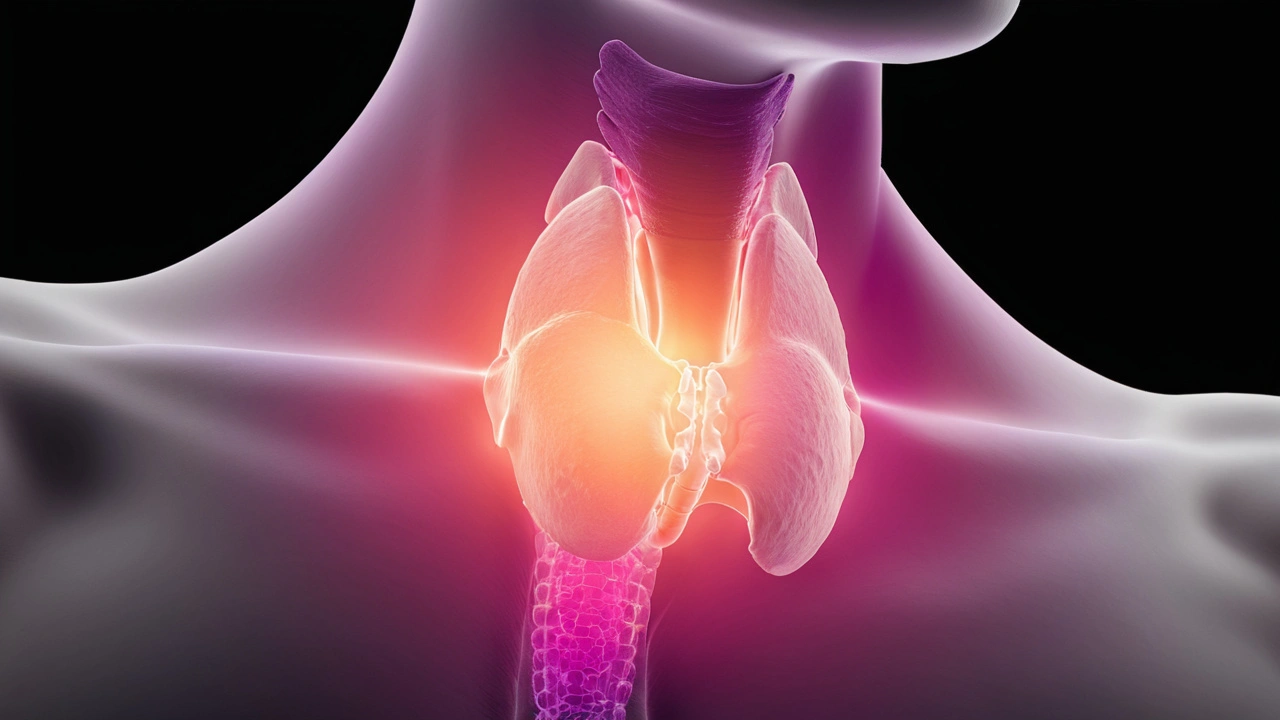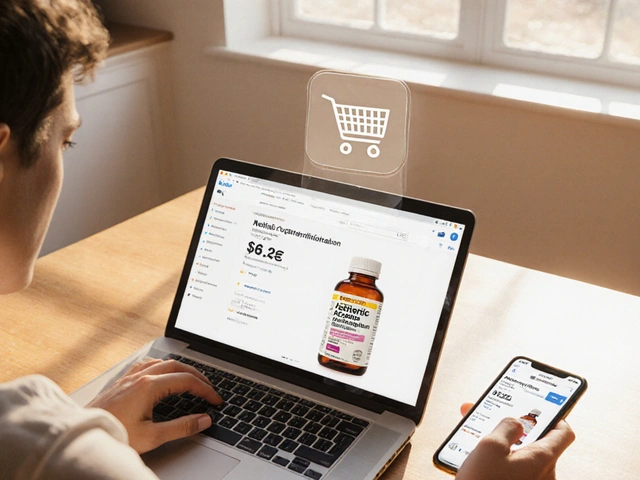
In a move poised to simplify the lives of millions of Americans suffering from hypothyroidism, the FDA has recently approved two critical changes to the labeling of levothyroxine sodium (Tirosint-SOL, IBSA). Tirosint-SOL, an oral solution designed to treat hypothyroidism, now includes recommendations that significantly differ from other similar medications. The new label changes primarily revolve around its use alongside proton pump inhibitor (PPI) therapy and its administration timing relative to meals.
The first notable change allows patients to take Tirosint-SOL even while undergoing PPI therapy. This is a crucial improvement because many patients with hypothyroidism also suffer from conditions requiring PPI medications, such as GERD (gastroesophageal reflux disease), which can interfere with the absorption of traditional levothyroxine products. By eliminating the concern over drug interactions, this label change marks a significant step forward in patient care.
The second major update is equally impactful. Tirosint-SOL can now be taken just 15 minutes before breakfast. For years, hypothyroid patients have been advised to take their levothyroxine on an empty stomach, requiring them to wait at least 30 minutes to an hour before eating. This regimen often complicated morning routines and adherence to the medication schedule. With this new change, patients can integrate their treatment more seamlessly into their daily lives.
Michael Scully, head of commercial operations at IBSA USA, emphasized the significance of these updates. According to Scully, these changes not only enhance convenience but also maintain the integrity of the treatment. Tirosint-SOL stands out for its simple formulation, containing only three ingredients, which reduces the risk of adverse reactions and interactions seen with more complex drug compositions.
The approval for these label changes was grounded in results from two clinical studies. These studies have shown that Tirosint-SOL does not interact with PPIs, maintaining its efficacy and absorption rates. Furthermore, the research confirmed that taking the medication 15 minutes before breakfast does not compromise its effectiveness. These findings provide robust evidence supporting the new recommendations.
Treating Hypothyroidism: A Closer Look
Hypothyroidism is a condition that affects the thyroid gland's ability to produce sufficient thyroid hormones, which are crucial for regulating metabolism. Its symptoms can be quite debilitating, including fatigue, forgetfulness, depression, constipation, and hair loss. With over 24.5 million people in the United States grappling with this condition, effective and manageable treatments are in high demand.
Women over 40 and the elderly are particularly prone to hypothyroidism, making ease of medication use a significant factor in their treatment adherence. Given the chronic nature of hypothyroidism, patients often require lifelong hormone replacement therapy, underscoring the importance of any improvements that simplify treatment regimens.
The Role of Levothyroxine Sodium
Levothyroxine sodium has long been the cornerstone of hypothyroidism treatment. It acts as a synthetic thyroid hormone, compensating for the deficiency of naturally produced hormones. Traditionally, patients were advised to take levothyroxine on an empty stomach to ensure optimal absorption. This often meant taking the medication upon waking and delaying breakfast. For many, this was a substantial disruption, leading to potential issues with adherence and consistent hormone levels.
Furthermore, the advent of PPIs provided relief for those suffering from acid-related issues but introduced another layer of complexity for hypothyroid patients. The interaction between PPIs and levothyroxine often led to fluctuating absorption rates and, consequently, inconsistent symptom control. With Tirosint-SOL's new label changes, patients can manage their thyroid and reflux treatments concurrently without fearing negative interactions.
The simplicity of Tirosint-SOL's formulation cannot be overstated. By maintaining just three ingredients, it minimizes the risks of inactive ingredient-related allergies or side effects. This purity not only enhances its tolerability but also ensures that the active hormone, levothyroxine, retains its potency and effectiveness.
Implications for the Future
The FDA's approval of these label changes signifies a pivotal moment in hypothyroidism treatment. By addressing two of the most common challenges faced by patients - medication timing and drug interactions - Tirosint-SOL sets a new standard of convenience and efficacy. This development could potentially lead to better treatment adherence, improved quality of life, and more stable management of thyroid hormone levels.
For clinicians, this means having a more flexible and reliable option to offer their patients. Tailoring treatments to individual needs becomes easier, especially for those who struggled with the rigidity of previous levothyroxine regimens. Patients can now embark on their days without the constant concern of medication timing dictating their schedules.
This advancement also opens the door to further research. Future studies might build on this foundation, exploring other potential benefits of simplified treatment protocols and streamlined drug formulations. As the landscape of hypothyroidism treatment evolves, patient-centric approaches like those seen with Tirosint-SOL are likely to become the norm, not the exception.
In conclusion, the FDA's recent approval of the label changes for Tirosint-SOL represents a significant leap forward in the management of hypothyroidism. By allowing its use with PPIs and enabling administration shortly before meals, it addresses two major pain points that have long affected patient compliance and quality of life. With evidence-backed benefits and a cleaner formulation, Tirosint-SOL stands as a testament to the ongoing advancements in thyroid care.





Douglas Fisher
July 28, 2024 AT 05:04Also, PPIs? I’m on omeprazole for GERD. I thought I had to choose between my thyroid and my stomach. Turns out, I don’t. This is life-changing.
Albert Guasch
July 28, 2024 AT 13:01Ginger Henderson
July 30, 2024 AT 11:37Bethany Buckley
July 31, 2024 AT 14:11It’s poetic, really-how we’ve reduced a physiological equilibrium to a 15-minute window and branded it as ‘innovation.’ Tirosint-SOL’s three-ingredient purity is a minimalist’s dream… but let’s not mistake regulatory leniency for medical transcendence. The thyroid doesn’t care about your breakfast schedule. It just wants its T4.
Stephanie Deschenes
July 31, 2024 AT 20:36For anyone switching: stick with the same brand. Even small formulation changes can affect absorption. And if you’re on PPIs, talk to your endo. This doesn’t mean you can skip monitoring.
Cynthia Boen
August 1, 2024 AT 16:56Amanda Meyer
August 3, 2024 AT 13:57Jesús Vásquez pino
August 4, 2024 AT 05:39Also, IBSA’s ‘three ingredients’ marketing? That’s not science-that’s a sales pitch. Every generic levothyroxine has like 5 fillers. So what? The hormone’s the same.
hannah mitchell
August 5, 2024 AT 23:36vikas kumar
August 6, 2024 AT 13:38Vanessa Carpenter
August 7, 2024 AT 19:05Bea Rose
August 9, 2024 AT 16:22Michael Collier
August 10, 2024 AT 19:36Shannon Amos
August 11, 2024 AT 00:17